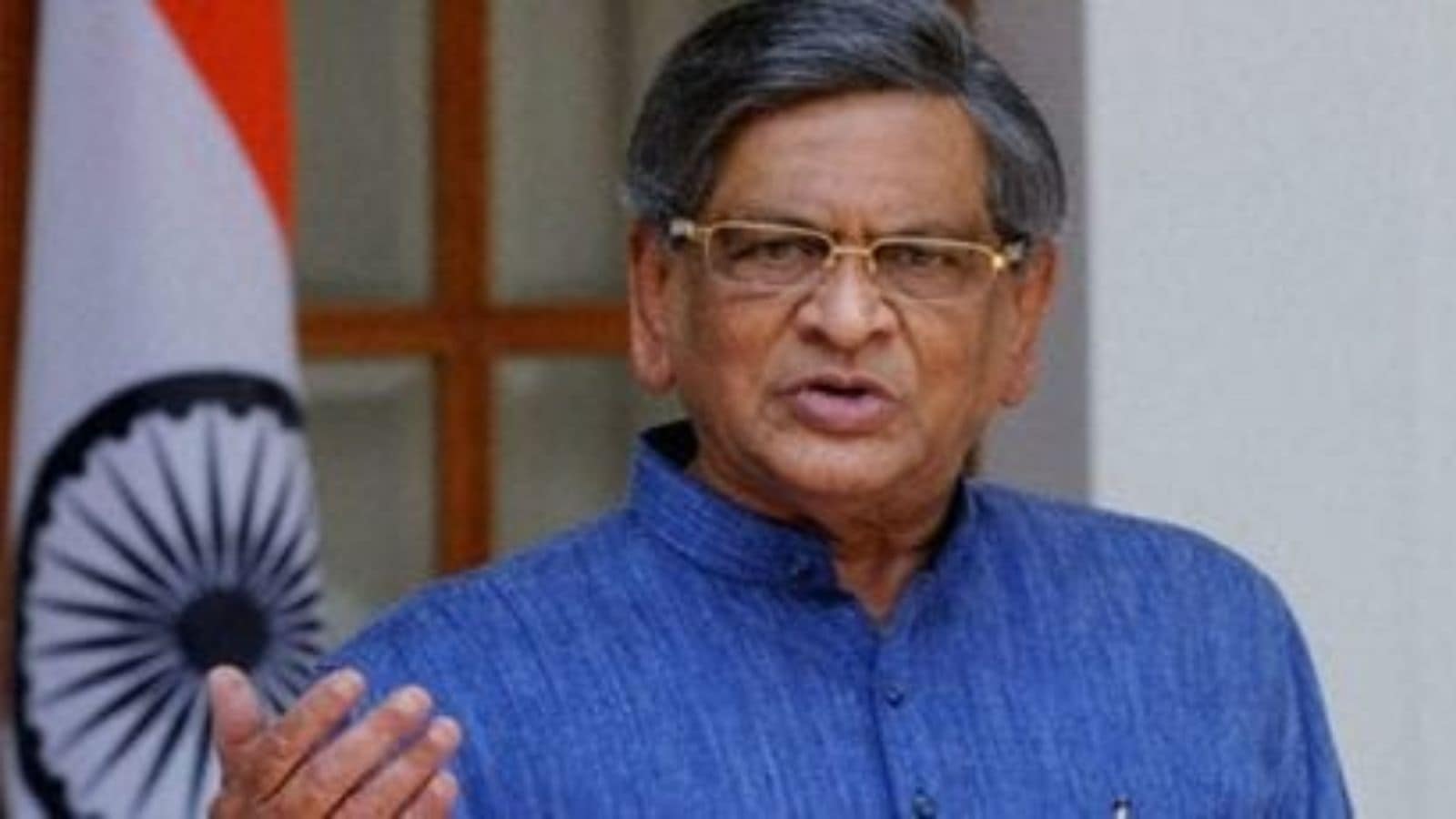 |
|
The state of Karnataka has declared three days of state mourning in honor of its former Chief Minister, S.M. Krishna, who passed away on December 9th, 2024. This period of mourning, commencing on December 10th and concluding on December 12th, reflects the profound impact Krishna had on the political landscape of Karnataka and India as a whole. His decades-long career in politics was marked by significant contributions to both state and national governance. His legacy extends beyond specific policy achievements; he is remembered as a statesman who navigated complex political challenges with diplomacy and a commitment to public service. The announcement of the state mourning signifies the collective grief felt by the people of Karnataka and the recognition of Krishna's immense contribution to the state's development and progress. The decision to observe three days of mourning underscores the gravity of the loss and the respect afforded to his enduring legacy.
The decision to hold the last rites of S.M. Krishna with full state honors at Somanahalli in Mandya district on December 11th further highlights the importance placed upon his memory. The choice of location likely holds personal or historical significance, possibly reflecting a connection to his roots or a pivotal moment in his career. The ceremonial aspects of the funeral, including the full state honors, suggest a deliberate attempt to provide a fitting tribute to his life and service. This public display of respect offers an opportunity for the people of Karnataka, colleagues, and admirers from across the political spectrum to come together and pay their last respects. It is a demonstration of unity and collective mourning in the face of loss.
Beyond the ceremonial aspects, the state mourning also involves practical implications for the functioning of government and public life. The national flag will fly at half-mast on all government buildings throughout the mourning period. This symbolic gesture serves as a visual representation of grief and respect for the departed leader. Moreover, the government has suspended all official entertainment events during these three days. This cancellation highlights the seriousness of the mourning period and underscores the prioritization of respect over other official engagements. The temporary suspension of celebratory events acknowledges the solemnity of the occasion and provides a dignified atmosphere for the remembrance of S.M. Krishna's life and work. The extent of these measures underscores the significance of this moment and the weight of S.M. Krishna’s legacy in Karnataka's history.
The question of whether banks will remain open on December 11th, the day of the last rites, is a practical concern arising from the state mourning declaration. While the declaration doesn't explicitly mandate bank closures, it's likely that many financial institutions will choose to observe the mourning period with reduced hours or complete closure out of respect. The decision rests on individual banks, balancing their operational needs with the sensitivity surrounding the event. Some banks may operate on reduced hours to allow employees to participate in remembrance services or attend the funeral. Others may opt for complete closure, demonstrating solidarity with the sentiments of the state. Ultimately, the final decision on bank operations will depend on the individual bank's policy and consideration of the overall atmosphere of state mourning. It's advisable for individuals to check with their respective banks for confirmation of their operating hours on December 11th.
S.M. Krishna’s passing marks the end of an era in Karnataka's politics. His contributions to the state, his diplomatic skills, and his influence within the national political arena will be long remembered. The three-day mourning period allows the people of Karnataka to collectively reflect on his life, his achievements, and the impact he had on shaping the state’s trajectory. The public response to the announcement of the mourning period will, in itself, provide a measure of the esteem in which S.M. Krishna was held. The outpouring of grief and tributes will further underscore his lasting legacy and his importance to Karnataka's political history. His life and career serve as an example of dedicated public service and a commitment to the betterment of the state and nation. The mourning period offers a space for remembrance, reflection, and commemoration of his life's work.
The implications of the state mourning extend beyond immediate practical matters; it influences the social and emotional fabric of Karnataka. It creates an opportunity for collective mourning and remembrance, fostering a sense of shared grief and appreciation for the departed leader. It provides a space for reflection on his legacy and its continuing impact. Public mourning rituals can foster a sense of community and solidarity, reminding individuals that they are not alone in their sorrow. The collective experience of mourning often strengthens social bonds and provides a platform for healing in the aftermath of a significant loss. This period of mourning facilitates a shared narrative, allowing individuals to process their grief collectively and find solace in shared remembrance.
Source: Karnataka declares three-day state mourning: Will banks remain open on December 11 in Karnataka?
